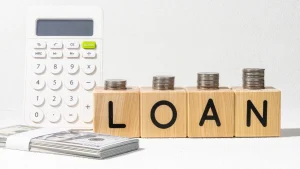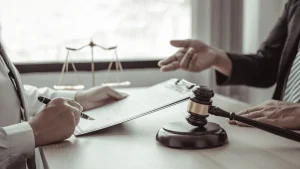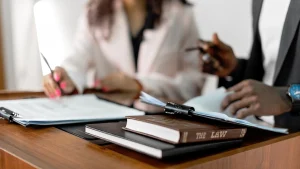If you have ever opened your email or answered your phone to find a demand for payment that you did not expect, you know how stressful debt collection can feel. When the name involved is CashNetUSA LLC, the pressure can be even more intense because their products often serve people who already feel financially cornered. Calls, emails, or texts about missed payments can quickly turn from mild concern into constant worry, especially if the tone feels threatening or confusing.
On top of that, there are also scammers who pretend to be from this company and use fear to push people into paying money they do not actually owe. CashNetUSA itself has warned consumers that impostors use its name while making aggressive and dishonest collection calls.
Whether you are dealing with a real account or with an impersonator, you do not have to accept harassment. United States law gives you strong rights when anyone tries to collect a consumer debt. This guide explains who CashNetUSA LLC really is, how their loans and collections work, what CashNetUSA harassment can look like, how to tell the difference between a real collector and a scammer, and what you can do to protect your money, your credit, and your peace of mind.
You will also learn how Consumer Rights Law Firm PLLC can step in between you and the collector so that you do not have to face this situation alone.
Who CashNetUSA LLC Is
CashNetUSA is an online lender and brand owned by Enova International, a publicly traded financial services company that offers short term loans, installment loans, and lines of credit to consumers in several states.
Some key points about the business
👉 • It operates mainly through its website and mobile channels, rather than physical branches.
👉 • It focuses on small dollar credit, usually with very fast approvals and funding, often used for emergencies.
👉 • Products vary by state, but often include payday style loans, installment loans, and flexible credit lines.
Because these products are designed for people with limited access to traditional credit, borrowers are often already under financial strain. When payments are missed, things can escalate quickly. People who took out a loan to solve a short term crisis may soon face repeated collection contacts, negative credit entries, or even assignment of accounts to outside collectors.
That combination of financial stress and aggressive follow up is why so many consumers end up searching for CashNetUSA harassment and wondering what they can do in response.
How CashNetUSA Loans And Collections Work

When a customer applies for a loan on the company site, CashNetUSA reviews information such as income, bank account details, and credit history, then issues a decision. If approved, funds are often deposited directly into the borrower account, sometimes as soon as the next business day.
Repayment typically happens through electronic withdrawals from the borrower bank account according to a schedule described in the loan agreement. For some loans, that schedule is tied to paydays. For lines of credit and installment loans, regular payments are expected each month.
If a payment is missed, the company can try to contact the borrower
- ➡️ It may send reminder emails or text messages.
➡️ • It may call the phone numbers given in the application.
➡️ • It may attempt additional electronic withdrawals depending on the agreement and applicable law.
If the account remains delinquent, the lender may:
- ✅ Place the account with an internal collection team.
✅ • Assign the account to an outside collection agency.
✅ • Sell a portfolio of defaulted accounts to a debt buyer that then uses its own collectors.
At that stage, a person who once dealt only with the lender website may suddenly receive calls and letters from a totally different company about the same account. This is where confusion and CashNetUSA harassment complaints often begin.
CashNetUSA Harassment And Impostor Scams
Not every call about a delinquent loan is illegal. Third-Party Debt Collectors are allowed to ask for payment in reasonable ways. The problem is that consumers report many experiences where the conduct feels abusive, threatening, or dishonest. At the same time, CashNetUSA warns that fraudsters pretend to be the company or its partners while trying to trick people into paying fake debts.
Common patterns in CashNetUSA harassment reports include
➤ • Repeated calls throughout the day that continue even after the person asks for a break.
➤ • Threats of immediate arrest, law enforcement action, or criminal charges over unpaid civil debts.
➤ • Statements that a lawsuit has already been filed when no court papers have been served.
➤ • Refusal to send written details of the debt.
➤ • Demands for payment by gift cards, prepaid cards, or unusual money transfer services.
These last demands are especially common in impostor scams. The company consumer notice page explains that real collectors will not threaten arrest or demand payment with gift cards, and it urges customers to hang up if they suspect a scam.
Real collectors working for the lender or for a legitimate agency must still follow strict rules. They may not use abusive language, cannot lie about what will happen, and cannot call at times or places that the law or your employer does not allow. When they ignore these rules, their behavior becomes harassment under federal law.
How To Tell Real Collection From A Scam

With CashNetUSA accounts especially, the line between a real collector and a fraudster can be confusing. To protect yourself, focus on verification and red flags.
Signs that you may be dealing with a real collector
➜ • The caller clearly identifies the company and gives a physical mailing address.
➜ • The caller can accurately describe details of your original loan, such as approximate date and amount.
➜ • The caller is willing to send written information by mail or verified email.
➜ • The caller accepts standard payment methods and does not insist on gift cards or similar tools.
Signs that you may be facing a scam
➥ • The caller claims to be from CashNetUSA LLC or a similar name but refuses to give an address.
➥ • The caller cannot or will not provide details about the original loan that you can recognize.
➥ • The caller threatens immediate arrest, jail, or police visits if you do not pay now.
➥ • The caller demands payment through gift cards, codes, or cash transfer services that cannot be reversed.
CashNetUSA states that it does not threaten criminal action for failure to pay and encourages consumers to contact the company directly using the number on its website if they receive suspicious calls.
If a caller seems suspicious, hang up, look up the official contact information on the company website, and reach out directly. Never rely on a number given to you in an unexpected call or message.
Your Rights Under Federal Debt Collection Law
When any third party tries to collect a consumer debt, even one originally issued by an online lender, its conduct is governed by the Fair Debt Collection Practices Act. This law gives you important protections.
Under the FDCPA, a debt collector may not
✔️ • Call you before eight in the morning or after nine at night in your time zone.
✔️ • Call repeatedly with the intent to harass, annoy, or abuse you.
✔️ • Use obscene language, insults, or threats of violence.
✔️ • Threaten arrest or criminal charges for not paying a civil debt.
✔️ • Misrepresent the amount you owe or lie about what legal actions have been taken.
✔️ • Claim to be from a court, law enforcement, or a government agency when that is not true.
✔️ • Reveal your debt to most third parties, such as coworkers or neighbors.
The law also requires collectors to respect your requests regarding certain contact. For example
- 🚨 If your employer does not allow personal calls, you can tell the collector not to call you at work.
🚨 • If you send a written request for most communications to stop, the collector must limit contact to specific notices allowed by law.
You also have a right to a written notice of the debt, which should state the amount claimed, the name of the current creditor, and your right to dispute the debt in writing within a set period. If you dispute the debt, the collector should provide verification before continuing active collection.
If a collector trying to collect a CashNetUSA account breaks these rules, you may be able to sue for statutory damages, actual damages such as emotional distress or lost wages, and attorney fees.
Your Rights Under Credit Reporting Law

When a CashNetUSA loan goes unpaid long enough, it may be reported to credit bureaus. Whether it appears as the lender name or under the name of a collection agency or debt buyer, that entry is regulated by the Fair Credit Reporting Act.
The FCRA requires that credit report information be accurate and complete. That means
- 👉 The reported balance must be correct.
👉 • The dates for first delinquency and other milestones must reflect reality.
👉 • The entry must identify the correct current creditor or collection entity.
👉 • The same debt should not appear as several separate accounts.
You have the right to obtain your credit reports, identify entries you believe are wrong, and send written disputes to the bureaus. The bureaus must investigate, and the furnisher of information must correct or delete any data that cannot be verified.
If a CashNetUSA related entry on your reports is inaccurate and remains wrong even after a proper dispute, you may have a legal claim for damages under the FCRA. This is especially important because negative entries can remain on your reports for years and can make it harder to get housing, car loans, or even some jobs.
How To Respond When You Receive A Collection Contact
When a call, text, letter, or email arrives about a CashNetUSA loan, it is easy to panic. A methodical response is safer and more effective.
Step one is to document everything
➥ • Write down the date and time of each contact.
➥ • Record the caller name and the company they claim to represent.
➥ • Note the phone number or email address used.
➥ • Summarize what was said, especially any threats or promises.
Keep copies of all letters and messages. Save screenshots of texts and call logs. This record helps you and any lawyer you consult to see patterns and identify possible legal violations.
Step two is to insist on written information
If you only received a call, tell the caller you will not make decisions until you receive a written notice of the debt. Once you receive it, compare the information with your own records as best you can. Check the original loan amount, dates, and claimed balance.
Step three is to dispute and request validation if needed
If the debt seems unfamiliar, the balance appears wrong, or you just want confirmation, send a written dispute letter. In that letter you can
➡️ • State that you dispute the debt or a portion of it.
➡️ • Ask for the name and address of the original creditor.
➡️ • Request an itemized breakdown of the claimed amount.
➡️ • Ask for copies of any documents that connect you to the loan.
Send the letter in a way that gives you proof of delivery, and keep a copy. While you are waiting for a response, do not agree to any payment plan or settlement if you are unsure of the facts.
❇️ Capital Currency Solutions LLC Debt Collection Harassment
How To Limit Or Stop Harassing Calls

Even when a debt is real, you are still in charge of how conversations happen. If collection calls are disrupting your life, you have several options.
You can clearly state that your employer does not allow personal calls and that you do not consent to collection calls at work. A collector who keeps calling your job after that may be breaking the law.
You can also say that certain times are not convenient and that you prefer communication in writing. Put these requests in a letter so that there is a record.
If CashNetUSA harassment or harassment by a collector on its behalf continues even after you have made reasonable requests, you can send a more formal letter asking that most communication stop. After receiving such a letter, a collector is generally limited to a narrow set of allowed contacts, such as notices of specific legal actions.
Letting unknown numbers go to voicemail while you collect information can also reduce stress. You can listen later, write down details, and decide on your next steps when you feel calmer.
❇️ FCO Collections Help: Stop Harassment & Verify Debts
When A CashNetUSA Account Leads To A Lawsuit
In some cases, a debt buyer or collection firm may decide that going to court is the best way to collect a CashNetUSA account. If that happens, you will receive a summons and complaint. Those papers are serious and must not be ignored.
The complaint usually claims that
✅ • You entered into a loan agreement.
✅ • You received money or credit.
✅ • You failed to repay according to the contract.
✅ • The plaintiff now owns the account and is entitled to a specific amount plus costs and interest.
The summons tells you how many days you have to respond. If you do nothing, the plaintiff can ask for a default judgment. With a judgment, it may be able to garnish wages, attach bank accounts, or place certain liens, depending on your state law.
You are allowed to fight back. A consumer rights lawyer can review the complaint and the available documentation. Often, debt buyers and collectors have incomplete records or cannot prove the full chain of ownership for the account. In some situations, the statute of limitation that sets a deadline for lawsuits has already expired.
When the same patterns that you experienced in CashNetUSA harassment appear in the lawsuit context, such as misstatements or threats, your lawyer may be able to raise counterclaims under the FDCPA or FCRA while defending you against the main case.
How Consumer Rights Law Firm PLLC Can Help

You do not have to manage aggressive collection attempts alone. Consumer Rights Law Firm PLLC focuses on representing consumers who are facing debt collection harassment, unfair credit reporting, and related issues.
Consumer Rights Law Firm PLLC
📌 133 Main Street Second Floor
North Andover MA 01845
📞 Phone 877 700 5790
📩 Email help@consumerlawfirmcenter.com
👤 Visit :Better Business Profile
The firm understands how online lenders and their collectors operate and how federal consumer protection laws can be used to protect you. The team can
- 👉 Review your call logs, letters, and credit reports for signs of legal violations.
👉 • Explain in clear language how the FDCPA and FCRA apply to your situation.
👉 • Communicate with collectors so you do not have to handle every call yourself.
👉 • Send formal demands that harassment stop and that any alleged debt be properly validated.
👉 • Defend you if a lawsuit has been filed and challenge the evidence presented against you.
👉 • Seek monetary damages when your rights have been violated.
Because many consumer laws allow successful consumers to recover attorney fees from collectors, it may be possible to receive strong legal help without paying large fees in advance.
Practical Steps To Protect Your Peace Of Mind
While you take legal and financial steps, your emotional wellbeing matters too. Dealing with CashNetUSA harassment or confusion over a loan can be draining. These practical habits can help
- ➤ Keep all documents about the loan and collection in one folder.
➤ • Set a specific time each day or week to deal with the issue so it does not consume every moment.
➤ • Let calls go to voicemail when you feel overwhelmed and listen later when you are ready.
➤ • Avoid making decisions during moments of panic; give yourself space to think and seek advice.
➤ • Reach out to trusted friends, family, or counselors if stress builds up.
Debt trouble is common, especially when people use high cost credit during emergencies. Feeling ashamed does not change the facts. Using your rights and asking for help is a sign of strength, not failure.
Success Stories
- 🏆 I was being harassed by Accounting Systems Inc over a debt I didn’t even owe. The law firm reviewed my case, proved the debt was invalid, and forced them to remove it from my credit report. They even got me compensation for the illegal collection attempts. If you’re dealing with debt collector abuse, call these lawyers—they fight for you!
- 🏆 After Accounting Systems Inc threatened legal action and called my workplace, I reached out to Consumer Rights Law Firm PLLC. They were incredibly responsive and explained my rights clearly. They negotiated a resolution, stopped the harassment, and made sure the collectors followed the law. I couldn’t have asked for better representation!
- 🏆 Accounting Systems Inc was calling me multiple times a day, even after I asked them to stop. I felt bullied and stressed. Consumer Rights Law Firm PLLC stepped in, sent a cease-and-desist letter, and sued for violations of the FDCPA (Fair Debt Collection Practices Act). Not only did the calls stop, but I also received a settlement for the harassment. Highly recommend their expertise!
Frequently Asked Questions
1. What is CashNetUSA LLC❓
CashNetUSA LLC is an online lender owned by Enova International that offers small-dollar loans, installment loans, and credit lines through its website and mobile platforms. It serves consumers who often have limited access to traditional credit options.
2. Why am I being contacted about a CashNetUSA account❓
If you are receiving collection calls, the account may be past due and transferred to an internal collector, outside agency, or debt buyer. Even if you originally dealt only through the online portal, a different company may now be contacting you to recover the balance.
3. How do CashNetUSA loans and repayment work❓
Applicants provide personal and financial details online. If approved, funds may arrive as soon as the next business day. Repayment often occurs through scheduled electronic withdrawals tied to payday or monthly billing, depending on the loan type and agreement.
4. What does CashNetUSA harassment look like❓
Harassment may involve frequent calls, threats of lawsuits or arrest, refusal to provide written debt details, or pressure to make immediate payments. Such behaviors can violate federal consumer protection laws and create unnecessary stress for borrowers.
5. Are scammers impersonating CashNetUSA collectors❓
Yes. CashNetUSA has warned that scammers pose as representatives and use intimidation to get payments. Fraudsters may demand gift cards, refuse to provide company details, or threaten arrest. Consumers should verify legitimacy before discussing payment.
6. How can I tell if a CashNetUSA call is real or a scam❓
A legitimate collector provides company details, explains the loan, and can send written verification. Scammers often dodge questions, demand urgent payment, or request gift cards or cash app transfers. When unsure, contact CashNetUSA directly via its official website.
7. What rights do I have under the Fair Debt Collection Practices Act❓
The FDCPA protects consumers from abusive collection practices. Collectors cannot threaten arrest, lie about legal actions, use abusive language, or call at inconvenient times. You may request validation, dispute the debt, and control when and where you are contacted.
8. What are my rights if CashNetUSA appears on my credit report❓
Under the FCRA, credit entries must be accurate and verifiable. If balances, dates, or creditor names are incorrect, you may dispute the entry with credit bureaus. If the furnisher cannot verify information, it must be updated or removed, protecting your long-term record.
9. What should I do if I receive a lawsuit over a CashNetUSA account❓
Do not ignore court papers. If you fail to respond, collectors may obtain a default judgment and pursue actions like wage garnishment. A consumer lawyer can review the case, challenge documentation, identify potential violations, and defend the lawsuit effectively.
10. How can Consumer Rights Law Firm PLLC assist with CashNetUSA LLC❓
Consumer Rights Law Firm PLLC can review documents, dispute inaccurate debts, stop harassment, communicate with collectors, defend lawsuits, and pursue compensation for FDCPA or FCRA violations. Many cases can be handled without large upfront legal fees.
Conclusion
Short term loans from online lenders can feel like a lifeline during an emergency, but when repayment goes wrong, the situation can quickly turn into relentless contact and confusion. Whether you are facing real collection on a CashNetUSA loan or calls from scammers using the company name, you are not powerless.
By understanding who CashNetUSA LLC is, learning how to spot impostors, recognizing the signs of harassment, documenting every contact, using your rights under the FDCPA and, and reaching out to Consumer Rights Law Firm PLLC when you need support, you can shift from fear to control. You may not be able to undo the past, but you can insist that any attempt to collect from you now is lawful, respectful, and fair, and that is the foundation for rebuilding your financial future.







